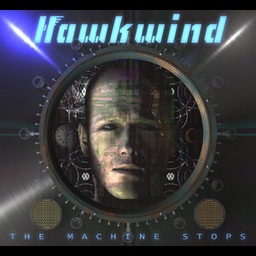I wanted more Godzilla, but the classic Toho collections are unclearly listed on 'Zon and elsewhere, I want only Japanese-language (English subtitle) theatrical versions and many are 4:3 English-dubbed TV versions. So… I'm putting this off until I can do some real research, and bought an iTunes two-pack of Godzilla (2014) and Kong: Skull Island (2017). Silly American films, but at least I know what they are.
Sort of: I didn't realize Kong Skull Island was a Vietnam-era period piece. That's kinda cool. Sam Jackson at 71 was really way, way too old to be a field officer (Lt Colonel); he's badass and insane, as usual, but it's like your grampa being badass and insane, not like a midlife officer going all Colonel Kurtz up in the jungle. The grunts are mostly personality-free, except for one played by Shea Whigham, and they serve only as expedition "hit points", getting picked off one by one so we can see how much danger the civilians are in. It is very, very, very Apocalypse Now-derived in style.
Hiddleston as the tracker J. Conrad (ha ha Heart of Darkness reference, but yeah…) is bland but effective, a Ken doll with all the hunting accessories and a lot of dialog which he recites competently, but slightly less than alive. Brie Larson as the photographer "Mason" Weaver has no motivation, and a weird boxy face, but at least she has an active role, and only once has to be saved by Kong and improbably held in his hand during a fight. John Goodman and Corey Hawkins do great as the lunatic scholars/scientists organizing the mission; sadly Jing Tian as the biologist does nothing and has almost no lines, despite this being exactly the kind of thing a biologist should be interested in and have a bunch of infodumping to do. The film fails the Bechdel Test because there's really only one female speaking role.
John C Reilly's comic relief role is… well, not the worst thing I've seen. They didn't spend too much time making jokes at his expense. He's awful fat and pale for a guy who's lived among skinny primitive people on an Indian Ocean jungle island for 30 years.
The chopper pilots are really foolish and don't understand the point of a long-range gun. A realistic (OK, physics of titans whatever man) fight between Kong and a bunch of Hueys with heavy machine guns and bombs does not go well for Kong; they should hover 100-500m away and just whittle him down to chipped beef, not go mano a mano with an ape who likes throwing rocks and trees.
The giant bugs and pseudo-pterodactyls all do physically implausible things, but they're scary monsters in a kaiju film. OK.
"We're not gonna talk about this? This is not normal! Stuff like that does not happen!"
The face/heel turns for Sam Jackson and Kong midway through were obviously telegraphed from the start (which is why I don't even bother to say "spoiler"). The soldier's love of war for its own sake, against Kong's self-defense and (usually) mercy for Humans who don't attack him.
So all of this makes a functional movie by itself. Then there's the bad kaiju, and here it kind of falls apart.
The "Skullcrawlers" are weird. They're based loosely on the two-legged skinks from the original King Kong, but the skull head is ridiculous, and they're very smart tactically (completely at odds with how lizards hunt) and then just line up to attack one at a time; they're all CGI, so why are they shot like there's just one suit?
The extreme plot convenience of a skullcrawler giving the tracker useful information during the fight, I would normally give a pass to one deus ex machina, but then the confrontation is almost completely ineffective.
I barely noticed the music, other than some '70s rock records which the grunts inexplicably took along on a 3-day combat mission; a soundtrack driving the tone of the film would've helped.
★★★½☆
The problem with King Kong movies (other than the Toho ones which just use him as a normal kaiju), they all struggle with complexity. The basic premise is:
- Voyage to Skull Island
- Horrible Natural Hazards
- Primitive Tribe
- King Kong is huge and terrifying
- Explorers run away
That's enough for a good story, but then each filmmaker piles a bunch of stuff on top:
- Kong fights dinosaurs
- Trappers take Kong to the circus
- Kong fights a bunch of aircraft
- Kong picks up a girl (romance seems out of the question, it'd be like a Human and a 9" pixie… YOU PERVERT, put Tinker Bell down!)
- Jessica Lange struts or sits in a boat nearly naked for long periods of time, and then professes love for the beast; as noted, problematic.
- Jack Black tries to act in a dramatic role
And pretty much none of this works. They pad out a film to 2-3 hours and take away from the thing that matters: King Kong.

